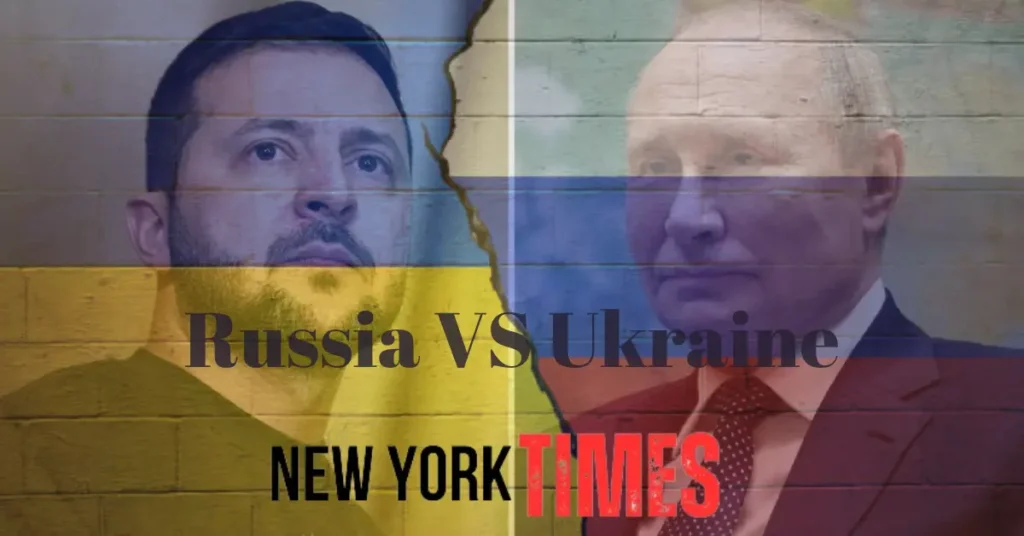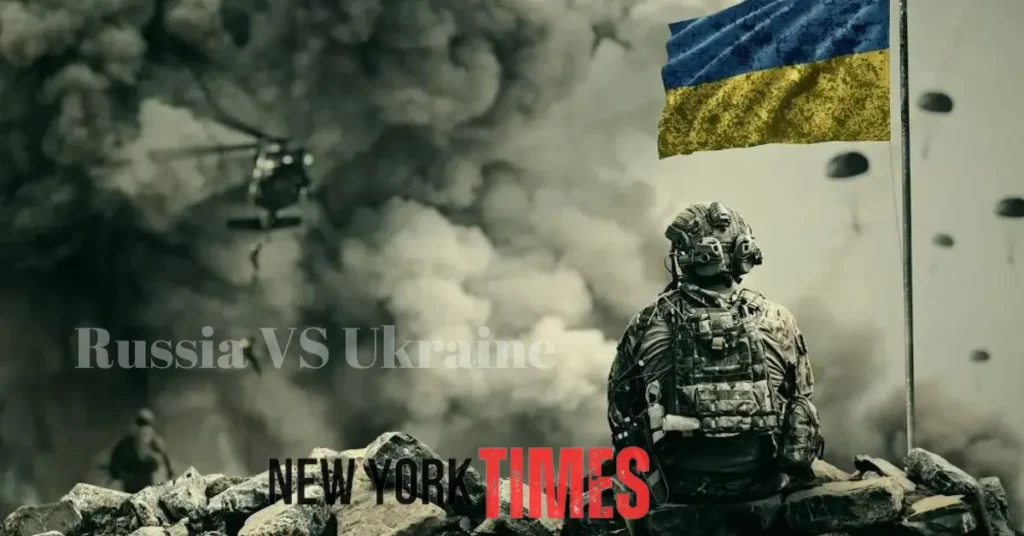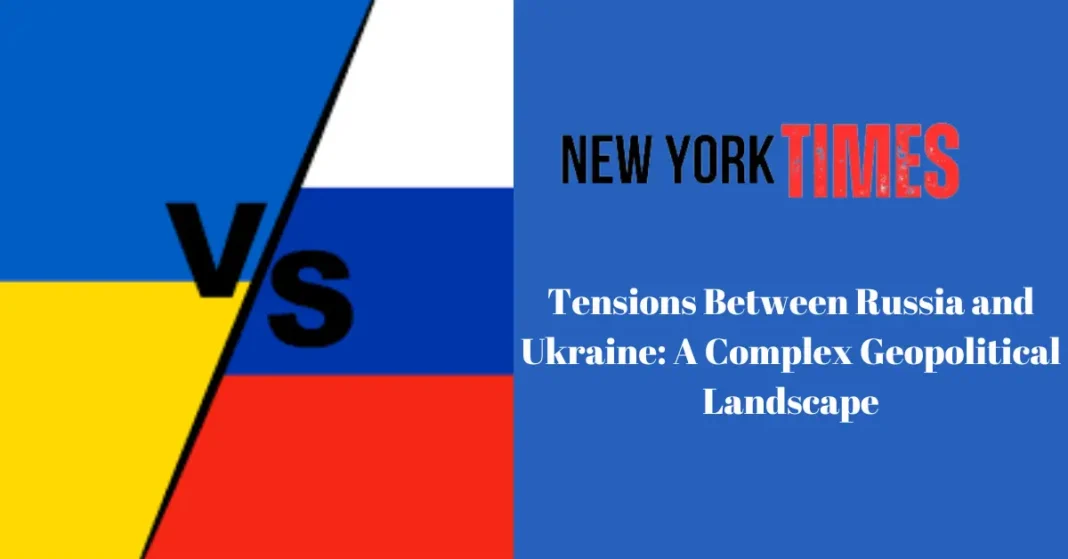Relationships that exist between Russia Ukraine are characterized by cultural, historical, and geopolitical challenges, typically marked by periods of cooperation and, in recent times tensions. The current geopolitical events within the area have sparked worldwide interest and aroused concern. This article will provide an outline of the historical background and current developments, as well as the potential implications of the relations that exist between Russia as well as Ukraine.
Historical Background
The historical connections between Russia, as well as Ukraine, are deep-rooted in the past, going back up to Kievan Rus’ era. However tensions developed during the 20th century, especially with the annexation of Crimea by the Soviet Union. Crimea in the year 1954. The dissolution of the Soviet Union in 1991 led to the creation in independence Ukraine which was a major shift regarding bilateral relations.

Recent Tensions
2014 was when Ukraine was faced with an incredibly crucial time during which pro-European protests in Kiev’s Maidan Square led to the resignation of the president of the time Viktor Yanukovych. The Russian annexed Crimea and the support for militant groups in Eastern Ukraine, particularly in Donetsk and Luhansk led to tensions rising between the two nations. The conflict that has erupted across Eastern Ukraine has resulted in the loss of a large number of lives as well as the displacement of civilians.
International Response
A wide range of countries comprised of each of the European Union and the United States as well as The United States, have condemned the actions of Russia regarding Crimea within the Crimea region as well as Eastern Ukraine. Sanctions were announced against Russia in the hope of forcing Moscow to reconsider its policies. However, the efficacy of these measures is still subject to debate because Russia is not reversing its decision to annex Crimea or renouncing its full support for separatist groups.
Energy Dependency
Another vital aspect of the Russian-Ukraine relationship includes the sector of energy. Ukraine has always been dependent on Russian natural gas. Moreover, disagreements over gas prices have caused tension in the relationship. Initiatives to diversify sources of energy and decrease dependence on Russian gas are ongoing and have been met with resistance.
The Role of NATO
The possibility that Ukraine joining NATO has been a cause of disagreement among Russia as well as NATO, the Western alliance. Russia considers NATO expansion as a threat to its security, however, Ukraine believes it is an opportunity to increase its sovereignty and security. The conflict has contributed to tensions throughout the region.
Potential Implications
The current conflicts that exist between Russia Ukraine are broader in scope for global and regional security. The ongoing conflict within Eastern Ukraine continues to pose a humanitarian emergency and the potential for the situation to get worse is a major concern. The conflict also impacts the diplomatic relationship with Russia as well as the West and contributes to a larger geopolitical division.
Diplomatic Efforts and Challenges
The international diplomatic effort is making a process to settle the Russia Ukraine conflict and to reach peace. The Minsk agreements, which were mediated by OSCE and an organization known as the Organization for Security and Co-operation in Europe (OSCE), were drafted to create an agreement regarding a ceasefire, as well as a blueprint for an accord on a political resolution to the conflict that is currently raging within Eastern Ukraine. However, the execution of the Minsk agreements has indeed faced a variety of difficulties, such as sporadic violations and persistent tensions.
The efforts to facilitate and to have discussions have taken place by a range of actors, including people from the United Nations, and the European Union as well as individuals of the governments. The international scene is complicated and every party has its interests and positions. The delicate nature of the negotiations requires a thoughtful approach to handle the needs of both parties. Russia along with Ukraine.
Humanitarian Impact
The ongoing conflict that has erupted in Eastern Ukraine has had a devastating impact on the humanitarian. The displacement of people the damage to infrastructure, and the loss of lives have produced a difficult situation for the people living in the regions affected. Humanitarian organizations face difficulties in assisting, and the overall health of the population in the affected areas remains the primary issue.
International organizations, including organizations like The Red Cross, have been trying to offer humanitarian aid and assistance to those impacted by the war. However, the conflict in the region creates obstacles to these efforts.
Global Security Implications
Beyond the immediate area, the conflict between Russia Ukraine can have wider implications for the security of the world. The conflict has caused tensions among Russia as well as Western nations, which has led to an increase in military posturing as well as geopolitical conflict. The possibility of unintentional militarization is a major concern which is why the international community follows events in the region.
NATO’s Role and Deterrence
The role played by NATO within the Middle East has always been a key dispute. While certain NATO members are in favor of a stronger position towards Russian aggression, others stress how important it is to find diplomatic options to stop further escalation. NATO continues to modify its approach and its footprint in the area to deal with changing security challenges.
The notion of deterrence plays an important role in determining the geopolitical landscape. NATO’s dedication to collective defense and its presence within Eastern Europe serves as a defense against any potential attack. Finding an equilibrium that encourages stability and security without increasing tensions is a difficult job.

The Way Forward
Solving the tensions among Russia as well as Ukraine requires a multifaceted strategy that addresses the historical, political, and security issues of all parties. Diplomatic efforts should continue with an emphasis on implementing and enhancing existing agreements. A global community of actors, which includes organizations such as those of the UN and OSCE is expected to be involved in facilitating dialog and establishing a common understanding.
Humanitarian aid is essential to ease the suffering of people affected by the war. The efforts to restore infrastructure, provide vital services, and aid people who are displaced help ensure the security of the entire region.
In the end, a complete and inclusive diplomatic solution is the only way to ensure lasting stability in the area. Participation of all parties in the process, as well as the observance of international law and the engagement in dialogue, are the most important components of a process that ensures security and stability within the two countries of Russia Ukraine, and contributes to world peace.
Conclusion
The relationship between Russia Ukraine is often complex and multifaceted and is dependent on historical, cultural, and geopolitical concerns. The conflicts that continue to simmer, especially with Crimea and Eastern Ukraine, have far-reaching consequences for the entire region and beyond. The international community is struggling to confront this delicate situation, and finding an amicable solution that is based on the interests of all parties, is an important concern. The outcome will determine how the world will view this crucial geopolitical alliance and its effect on stability in the world.
How can we determine the root of the war in Russia as well as Ukraine?
The root of the conflict could be traced to the past, culture, and geopolitical causes. The tensions increased dramatically in 2014 when Russia acquired Crimea and backed rebel movements that were forming in Eastern Ukraine.
What’s the Minsk agreement? And why is not solved the dispute?
The Minsk Agreements comprise a series of ceasefires and political agreements that aim to resolve the war within Eastern Ukraine. However, their implementation has been met with difficulties due to infringements, conflicting interpretations, and ongoing geopolitical challenges.
What is the reason why Crimea is an issue of disagreement with Russia in addition to Ukraine?
Crimea is a historical part of both Russia as well as Ukraine. The year 1954 was the time that Crimea became part of to Russian Soviet Federative Socialist Republic to the Ukrainian Soviet Socialist Republic within the Soviet Union. The annexation by Russia of Crimea in 2014 has been the main cause of conflict.
How did the international community respond to the crisis?
A large international group, comprising those from the European Union and the United States has condemned Russia’s conduct within Crimea as well as Eastern Ukraine. Sanctions have been issued to put pressure on Russia however opinions about their effectiveness differ.
What’s the function of the role of NATO in the conflict between Ukraine and Russia?
NATO has been a key dispute over the years, with Russia seeing NATO expanding as a threat to security. Certain NATO members advocate for more forceful stances towards Russian aggression, whereas others insist on diplomatic solutions.
What will be the human effects of the conflict?
The conflict has created an enormous humanitarian crisis that includes the displacement of civilians, the destruction of infrastructure, and the loss of lives. Humanitarian organizations face difficulties in providing aid, and the well-being of the people living there is a major concern.
What is energy dependence a determinant in the Russian-Ukraine relationship?
Ukraine was historically dependent on Russian natural gas. Gas prices are a source of contention. created tension in the relationship, leading to initiatives from Ukraine to diversify its energy sources and lessen its dependence on Russian gas.
Does there exist a possibility for military escalation within the area?
The threat of an escalation in military force remains a worry which is why the global community examines developments. Its involvement within Eastern Europe serves as a security measure, but diplomatic efforts are vital to stop unintentional escalated tensions.
What’s the purpose of diplomatic efforts to resolve the issue?
Diplomatic efforts are vital to the achievement of a peaceful resolution. International cooperation, comprising organizations like OSCE and the UN and OSCE is a key player in encouraging dialogue and finding an agreement.
How do we resolve the conflict for peace to last throughout the entire region?
A broad solution to the diplomatic problem is vital, which addresses the political, historical, and security issues. The involvement of all stakeholders involved as well as the respect of international laws and the commitment to dialogue are crucial elements of a road to long-term peace.


